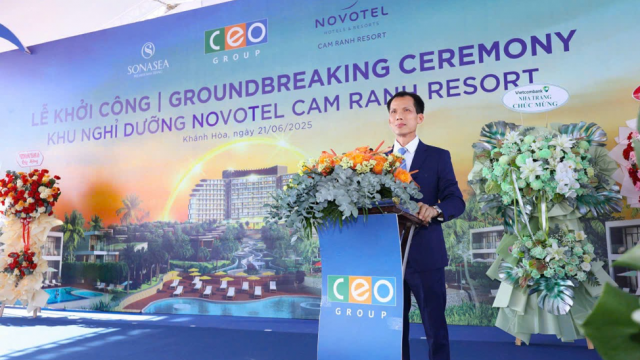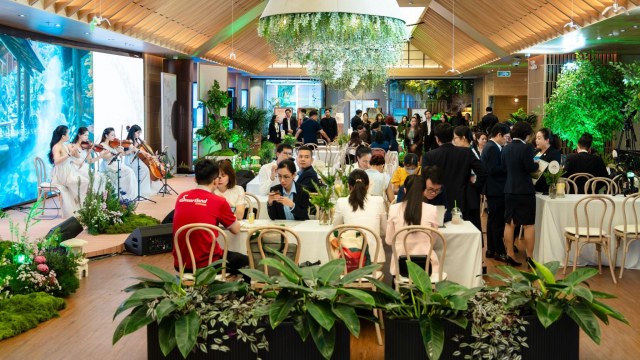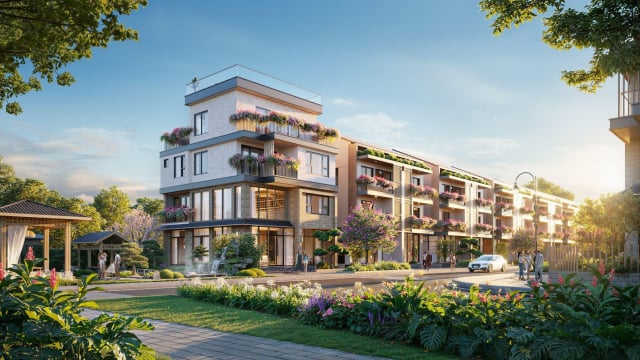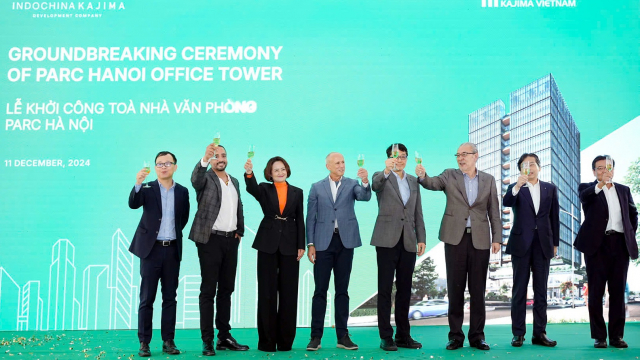Property
Technology optimizing personal way of customer services in hospitality industry
Guests can now use technology to facilitate their journey before, during and after staying at the hotel.

Vietnam still has one of the highest growth rates worldwide in terms of international arrivals, new international brands and project pipeline.
According to director of Savills Hotels APAC Mauro Gasparotti, the hospitality industry in Vietnam will continue to contribute greatly to the rapid growth of the economy and create more jobs for Vietnamese people.
The market has witnessed an increase in hotel and resort rates throughout the country in 2018 with the performance of hotels in main cities being particularly strong. Developers also begin to propose international mid-scale and focused service hotels as well as giving more importance to design and guest experience.
However, Mauro expresses that there are market threats related to the strong pipeline of new supply in the coastal areas, the fast growth of alternative accommodation via Airbnb as well as the overall expected slowdown in global travelers this year.
Uyen Nguyen, senior manager of Savills Hotels, also states that resorts destinations achieved slightly lower average occupancy due to new properties entering the market in 2018.
A total of 75 new hotels and resorts in the four and five-star categories opened in six main coastal destinations providing 15,900 rooms. This number is equal to 24 per cent of the existing supply. In addition, other 45,600 rooms are expected to come online during 2019-2022 which will definitely pose a threat for large standardized resorts.
Meanwhile, Mauro highlights that well-positioned hotels or resorts, with ‘instagrammable’ design, quality food and beverage, unique facilities or services are currently performing better with higher rates and occupancies than the more standard products. These products are defined as experience hotels or resorts and will be less affected by the overall pipeline of new openings.
According to Uyen, strong competition may occur among large properties who target groups or budget travelers. The market occupancy for the next couple of years is expected to be affected by new supply in Danang, Cam Ranh, Phu Quoc in both the Condotel and resort segments, and this may result in a slowdown in performance with rates having to adapt to the new level of competition.
“That said, it is clear in Hanoi and Ho Chi Minh City, where new supply will be relatively limited, and performance is expected to hold well, that there are numerous opportunities for new developments across all segments,” says Uyen.
Hotels now have the possibility to clearly identify categories of travelers to serve their needs in a much more personal way than before.
These changes in consumer behavior are due to upcoming technologies and data analysis which have increased growth in solo travelers, experience seekers, the groupies, Instagrammers, adventure seekers, last minutes travelers, single parents, multigenerational families, b-leisure, wellness travelers.
According to Bryan Chan, director of development, Southeast Asia & Korea of InterContinental Hotels Group, technology has permeated the entire spectrum of the hotel experience from the initial design of the property to delivering on the brand promise to guests every day.
“With constant innovation, the key is to pick the best technology to support performance for owners, making things easier for hotel colleagues, as well as light up the guest experience”, says Bryan.
The guests can now use technology to facilitate their journey before, during and after staying at the hotel. Energy and waste reduction technologies such as the building management system are expected to save costs by monitoring the ongoing performance of equipment in the building. Modular construction was also discussed during the event as an innovative methodology for fast and efficient construction with consistent quality.
Robot butlers, mobile key, mobile check-in/ check-out or smart guestrooms are being applied more often in hotels to reduce operating costs and staff numbers. However, a ‘human touch’ will remain a critical part of the guest experience.
Hanoi high-end hotels go West
Hai Phong industrial property powers up with new project from Indochina Kajima
The project Core5 Hai Phong from Indochina Kajima and Itochu Corporation will deliver approximately 80,000 square metres of world-class ready-built factory for lease, handover expected in the first quarter of 2027.
A decade of unprecedented apartment price surge
A decade of relentless apartment price growth has pushed the dream of homeownership further out of reach for Vietnam’s middle- and lower-income earners.
Essensia Parkway sells out within hours, marking an outstanding partnership with WorldHotels
Essensia Parkway makes significant impact in the high-end real estate market as 100 per cent of the limited collection was successfully registered within just a few hours at the launching event with the theme “Live lux-well, in a truly refined world”.
Essensia Parkway gains global prestige through WorldHotels - Phu Long collaboration
Essensia Parkway is set to mark a significant milestone as the first branded residences project in Ho Chi Minh City to be operated by WorldHotels – one of the finest portfolios of independent hotels and resorts within BWH Hotels.
Indochina Kajima breaks ground on Grade A office building in Hanoi’s emerging hub
Parc Hanoi marks Indochina Kajima's first office-for-lease project in its $1 billion investment plan in Vietnam.










































